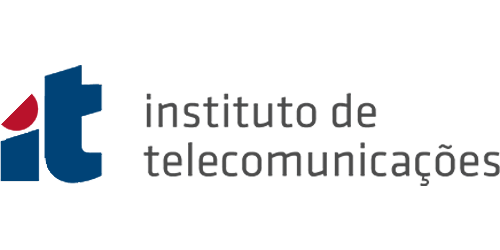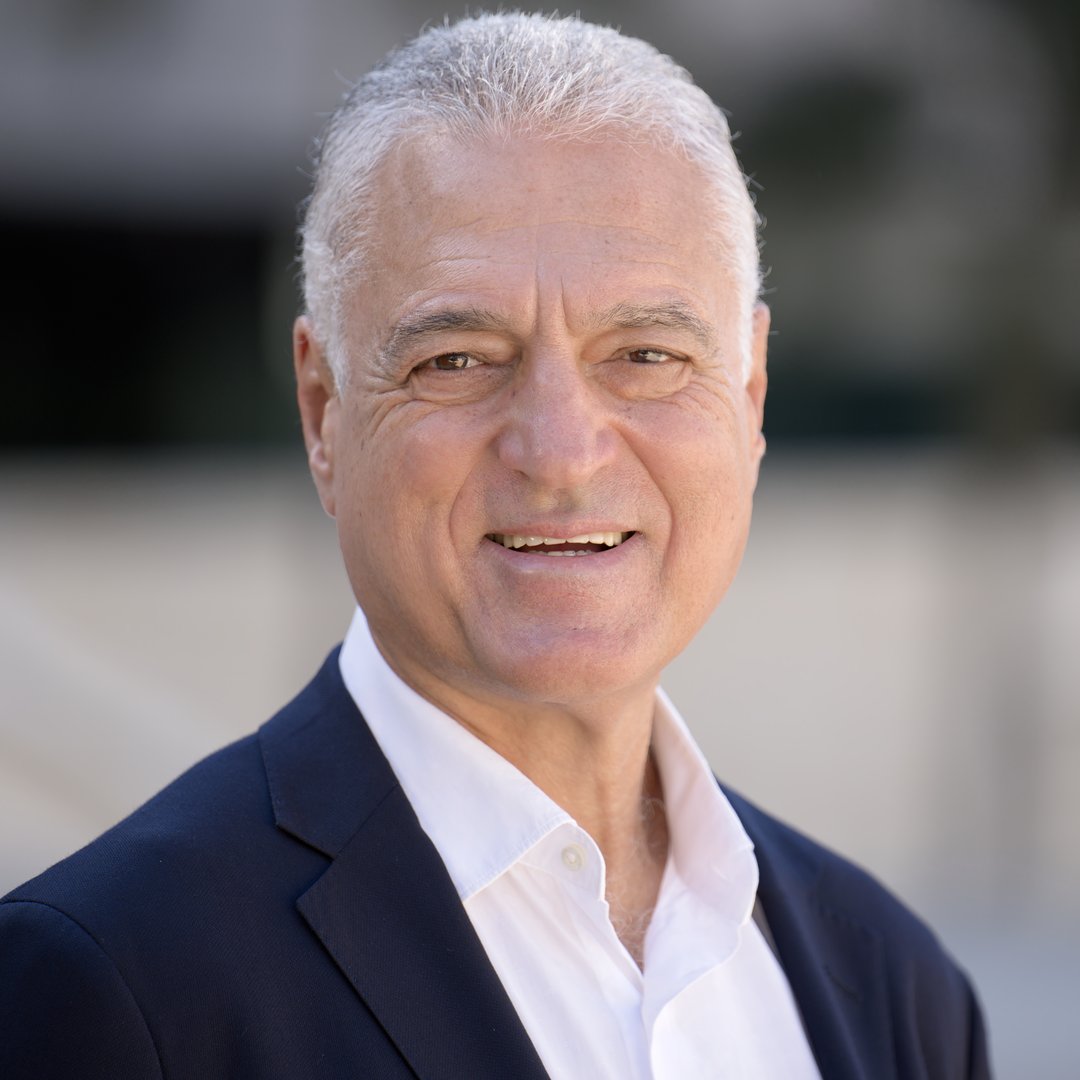Building Resilient Communications for Distributed Systems Applications: From Blockchain to Autonomous Vehicles and 5G V2X
The IEEE Communications Society - Portuguese Chapter and the Route 25 project (https://route-25.com) invite you to an event dedicated to ensuring safety and security in distributed systems. Discover how blockchain technology is revolutionizing digital identity, how AI/ML models can be integrated in autonomous vehicles architectures, and how 5G V2X communications are improving resilience in vehicle-to-everything interactions. This event is perfect for those interested in the latest research and developments in resilient distributed systems.
Note on lunch: Lunch (optional) will be served on the premises of the Instituto de Telecomunicações. But please, as meals will be served based on the number of people who answer YES, please do so responsibly in order to avoid waste.


Date and Time
Location
Hosts
Registration
-
 Add Event to Calendar
Add Event to Calendar
- Instituto de Telecomunicações
- Campus Universitário de Santiago
- Aveiro, Centro
- Portugal 3810-193
- Building: 19
- Room Number: Amphitheatre
- Click here for Map
- Contact Event Hosts
-
João Almeida, jmpa@ua.pt
- Co-sponsored by Instituto de Telecomunicações
- Starts 26 June 2025 11:00 PM UTC
- Ends 09 July 2025 09:59 PM UTC
- No Admission Charge
- Menu: Lunch (Upon registration), No Lunch.
Speakers
Ion Turcanu of Luxembourg Institute of Science and Technology
Mitigating Collisions via Inter-UE Coordination in 5G New Radio Vehicle-to-Everything Sidelink Communications
The evolution of 5G New Radio (NR) Vehicle-to-Everything (V2X) communication is opening new horizons for both road and rail transport. Designed to support direct Sidelink (SL) communication between vehicles, infrastructure, and other road users, NR V2X enhances safety and enables time-critical applications such as collision avoidance and intersection coordination. While originally targeted at automotive use cases, NR V2X is now being considered as a key enabler for next-generation train communication systems, offering the potential to support wireless train backbones and consist networks in scenarios where infrastructure-based coverage is limited. This presentation will examine the current limitations of decentralized 5G NR V2X Sidelink scheduling mechanisms, particularly in Mode 2(a), where autonomous resource selection can suffer from issues such as the hidden-node problem. We will explore cooperative scheduling strategies, also referred to by 3GPP as Inter-UE coordination, which aim to improve the reliability of resource allocation in such decentralized scenarios. A candidate implementation of a cooperative scheduling mechanism will be presented, along with preliminary performance evaluation results that illustrate its potential and highlight remaining challenges.
Biography:
Ion Turcanu is the Head of the Networking and Communications (NETCOM) group at the Luxembourg Institute of Science and Technology (LIST). He received his Ph.D. in Information and Communication Technologies from the University of Rome Sapienza in 2018. His research focuses on cooperative networked systems, V2X communications, connected and automated mobility, and time-sensitive networking. He currently serves as Principal Investigator (PI) of several research projects, including the FNR-funded LEONE, the CANDI project (ANR-FNR, coordinating the Luxembourg partners), and BISTWIN, co-funded by the Ministry of the Economy of Luxembourg. He is also an Associate Editor for the IEEE Vehicular Technology Magazine and Elsevier Vehicular Communications journals. He has contributed to the organization of international conferences, including MedComNet 2024 and IEEE VNC 2024.
Miguel Pupo Correia of IST and INESC-ID
Blockchain and Digital Identity: SSI, DIDs, VCs, EBSI
In this presentation we explore the application of blockchain technology in the realm of digital identity, focusing on Self-Sovereign Identity (SSI), Decentralized Identifiers (DIDs), Verifiable Credentials (VCs), and the European Blockchain Services Infrastructure (EBSI). We begin by explaining how DIDs enable secure, self-sovereign identities that give individuals control over their personal data, moving away from centralized identity models. We then delve into VCs, which allow for the verification of identity credentials without relying on third parties, enhancing privacy and security. Finally, we discuss EBSI's role as a European initiative to leverage blockchain for cross-border services. By integrating these technologies, blockchain has the potential to revolutionize identity management, providing a secure, decentralized, and user-centric approach for the digital age.
Biography:
Miguel Correia is a Full Professor at Instituto Superior Técnico, Universidade de Lisboa. He is President of the Executive Committee of INESC-ID, as well as a researcher of the Distributed, Parallel and Secure Systems (DPSS) scientific area. He has been involved in several international and national research projects related to cybersecurity, including the BIG, TRUSTyFOOD, DE4A, QualiChain, SPARTA, SafeCloud, PCAS, TCLOUDS, ReSIST, CRUTIAL, and MAFTIA European projects. He has more than 200 publications and is Senior Member of the IEEE. His research focuses on cybersecurity and dependability (fault tolerance) in distributed systems and in the context of different areas (blockchain, cloud, mobile).

Paulo Esteves-Veríssimo of UL - LASIGE / SnT - LU
Safe and Secure AI/ML-driven Autonomous Vehicles? A distributed problem requiring distributed systems solutions
Currently, there is a substantial push towards autonomous vehicles (AV) in the market. However, autonomous vehicles, though using extensive fault-tolerance e.g., in x-by-wire functions, are still not quite safe from an accidental faults’ perspective, leave alone malicious faults. Furthermore, the growing number of recent AV architectures hinging on the advancements in AI/ML models, given their functional power, must be put in context with an equally significant number of related serious or fatal accidents. These pitfalls have been very slowly recognized by carmakers, with potentially harming results. Simultaneously enforcing unavoidable properties of Safety and Security in the autonomous vehicles ecosystem is by nature a distributed problem. I advance by suggesting to address it with distributed systems paradigms, under the umbrella of cyber resilience. Namely, I will discuss how in-car architectures might evolve to achieve fault and intrusion resilience of ECUs at system level, as well as reconciling the data-level stochastic nature of AI/ML paradigms with the determinism of driving control theory at system level, leveraging the best from both worlds: trustworthiness and intelligence.
Biography:
Paulo Esteves-Veríssimo is research fellow at the Universities of Lisboa (PT) at LASIGE, and Luxembourg (LU) at SnT. He has been professor at KAUST (SA) and founding director of its RC3 Center (https://crisys.kaust.edu.sa/). He is Fellow of IEEE and Fellow of ACM, author of over 220 peer-refereed publications and co-author of 5 books. He is currently interested in resilient computing, in areas like: SDN-based infrastructures; autonomous vehicles; distributed control systems; digital health and genomics; or blockchain and cryptocurrencies.



